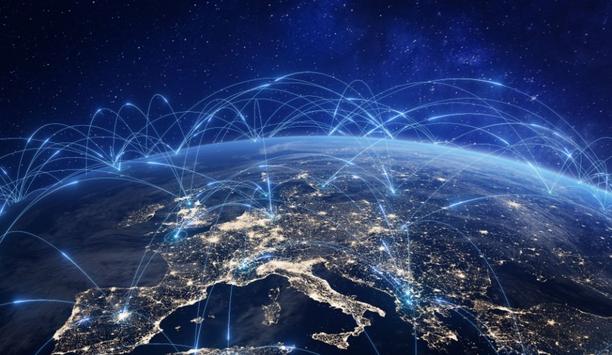IP security solutions - Round table discussions
Products are the building blocks of systems and solutions. How those products are combined, and where the integration happens, is a variable in the physical security market. Before the advent of open systems, a single manufacturer typically combined his own products, using proprietary connections, into end-to-end solutions for customers. Open systems undermined that paradigm to some degree and made it possible for customers to pick and choose products from multiple manufacturers to be integrated...
Even the most effective technologies usually require some level of human involvement. What new technologies do, generally speaking, is change the nature of a human’s role. Most jobs in today’s world are vastly different than 50 years ago, in many cases because of the changing role of technology. In the physical security world, what specific impact does technology have on the human element of systems? We asked this week’s Expert Panel Roundtable: Have recent developments in secu...
Big data is a buzzword, and data – presumably of all sizes – is a driving force in the physical security market. As systems become more sophisticated and expand their capabilities, the result is more data; in some cases, a lot more data. But a key question is: What do we do with the data? How do we use it to provide value? How do we interpret it, and transform it into useful information and/or intelligence? We presented the topic of data to our Expert Panel Roundtable and came away w...
For many years, cybersecurity was the unmentioned elephant in the room. Possible vulnerability of IP-connected devices to a cyber-attack was seldom, if ever, mentioned, and even the most basic measures to prevent such an attack were not implemented. For the last couple of years, however, the physical security industry has begun talking more about cybersecurity, in some cases with an abounding enthusiasm typical of the newly-converted. Have our discussions sufficiently addressed the long-standing...
The International Organization for Standardization (ISO) describes standards as guidelines or characteristics for activities or for their results, aimed at achieving the optimum degree of order. They might include product standards, test methods, codes of practice, guideline standards, and management systems standards. In the security marketplace, there are many standards currently used, including those from organisations such as ONVIF, PSIA and ASIS International. Might the value of standardisa...
As security industry buzzwords go, “convergence” is perhaps the best known and most pervasive. We have been hearing about convergence in our market for almost 20 years. We have heard it’s happening soon. We have heard it’s inevitable. And yet, for all the talk of convergence, it has sometimes seemed there has been more talk than action. We wanted to check in with our Expert Panel Roundtable and get their latest takes on this most enduring of industry buzzwords. We asked t...
Rapid changes in technology span both the consumer and the physical security markets. In the consumer market, technology innovation is nowhere more apparent than in the palms of our hands, where we all hold the latest smartphones and mobile devices. Simply put, the unprecedented power and capabilities of today’s smart phones have changed our lives. No wonder they are also having an impact on our business of physical security systems. Although a consumer product, smartphones increasingly pl...
The end of the year is a great time to reflect on what the security industry has accomplished and to look ahead. We invited our Expert Panel Roundtable to weigh in on what they expect looking forward to the new year. Most industry-watchers are familiar with the major trends, but how will those trends play out in 2017? Specifically, we asked this week’s Expert Panel Roundtable: What will be the biggest headlines for the security marketplace in 2017?
Sometimes you see it coming and want to scream out: “Don’t do that.” We all make mistakes, but it’s hard to sit and watch others as they go down the wrong path. It’s especially difficult when the errant party is a customer, and when their wrong move might somehow end up reflecting badly on you as a technology or security systems provider. Much better to anticipate the problem by expecting the possible mistake before it happens. We asked this week’s Expert Pane...
Big security trends are driving change in the physical security market. We see change happening around us every day, and much of it is disruptive to the status quo. We asked this week’s Expert Panel Roundtable: What has caused the greatest disruption to the physical security market in the last 12 months?
Environmentalism is a universal consideration in most business sectors in 2016. Whether seeking to provide greener products, or looking for new ways to minimise waste of manufacturing processes, most companies are involved to some degree with environmental concerns. Green has not traditionally been a big driver in the security industry, but there are indications the profile of environmentalism is increasing. We asked this week's Expert Panel: How green (environmentally friendly) is the security...
One of the benefits of newer IP systems is the ability to store video inside the camera or in a nearby digital video recorder (DVR) at the edge of the network. Edge-based storage is unlikely to take the place of centralised storage, but it is complementary and provides some interesting new options related to system design. We asked this week’s Expert Panel Roundtable: What is the value of edge-based storage and in what specific applications?
Video cameras are smarter than ever. Video analytics functionality is available inside most cameras now on the market. Smarter cameras enable a system with distributed intelligence and also help to manage bandwidth and storage – on-camera intelligence can determine what video is important enough to tie up network resources and to eventually be retained or viewed. But on-camera video analytics have their limitations, and additional video intelligence at the server can add a new range of fun...
More and more physical security systems are being hosted in the cloud. But are cloud-based security systems “safe?” It’s a question being posed by risk-averse security professionals all over the world, and one for which a clear, concise answer may be difficult to find. We decided to pose it to our Expert Panel.
Violence in our schools and colleges often makes headlines, suggesting a growing and scary trend. A consequence of high-profile school shootings and other reports of violence is to increase awareness of the need to ensure safety and security of students, faculty and staff. The events have prompted more than one educational institution to take a second look at their security policies and infrastructure, with an eye toward improvement. But to what effect? Has greater awareness of violence in educa...
Rapid technology innovation in the physical security market comes with it a commensurate need to dispose of older systems as they are replaced. Some technologies can help minimise the waste, providing, for example, the ability to use existing coaxial cable with newer IP video systems. However, absent the ability to reuse equipment, how should integrators manage disposal of systems at end-of-life? Here are some responses from our Expert Panel.
The U.S. physical security market will be focused on Las Vegas this week and the big ISC West trade show for 2015. But what should attendees expect when they get to Sin City? We asked our panelists for their insights into what will be making “big news” at this year’s show. Fortunately, the suspense is almost over!
This week’s Expert Panel revisits a classic question that has been around since the advent of IP video: Should an enterprise’s video system have its own network, or should it share the corporate network? Our panellists' responses reflect new IT trends, technology changes and shifting priorities that are impacting how the question is approached. Rising concerns about cyber-security (such as fears that video might provide a hacker entry into the enterprise system) are one new aspect. N...
We all like hearing about the latest and greatest technologies, but how well are we using the technologies we have? We asked our panelists to reflect on opportunities to maximise the benefits of using common technologies in the marketplace, specifically to point out ways to garner more value from existing products. Underutilising existing technology capabilities are a waste of money, aren’t they?
Just like many things, security systems have their own life cycles. Most end users would say that a "good" system should last a certain amount of time. Each system or device has a generally established and expected life span, and anything that falls short of its life expectancy is generally deemed as "poor quality." We asked some of our panellists to reflect on the life cycles of security systems. We wanted to get their insights on trends they have observed i...
Maintaining a high level of customer service can be a challenging experience when an acquisition takes place.This issue is of particular relevance to the security industry, where merger and acquisition activity continues to rise. We asked some of our Expert Panellists to share their thoughts on how both the acquired company as well as the company making the acquisition can retain the focus on their customers throughout the integration process. Here’s what they had to say.
Palm vein recognition
DownloadThe key to unlocking K12 school safety grants
DownloadSelecting the right network video recorder (NVR) for any vertical market
DownloadPhysical access control
DownloadCybersecurity for enterprise: The essential guide to protecting your business
Download

























